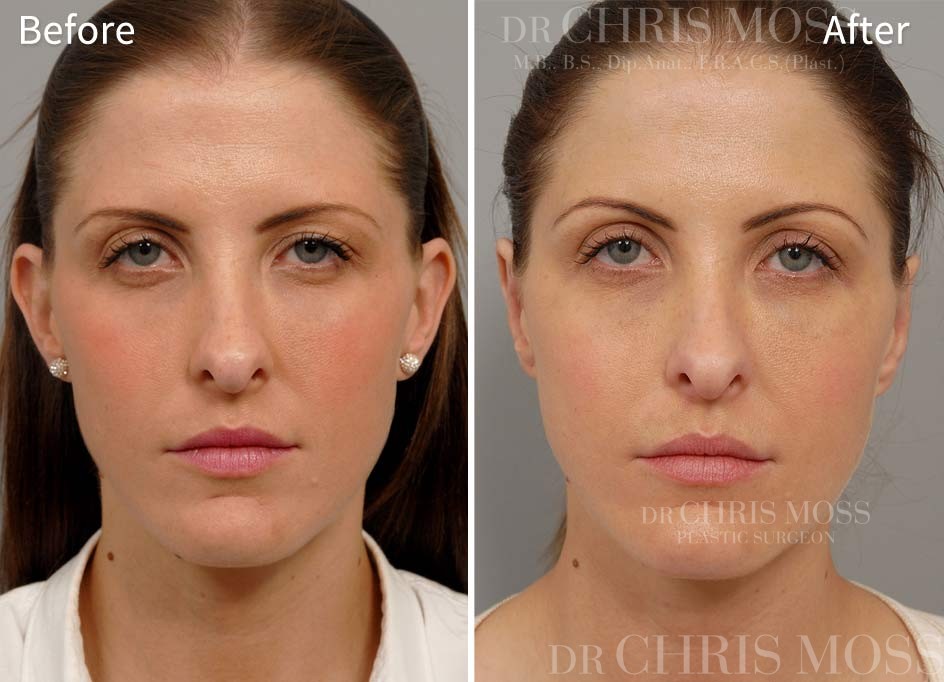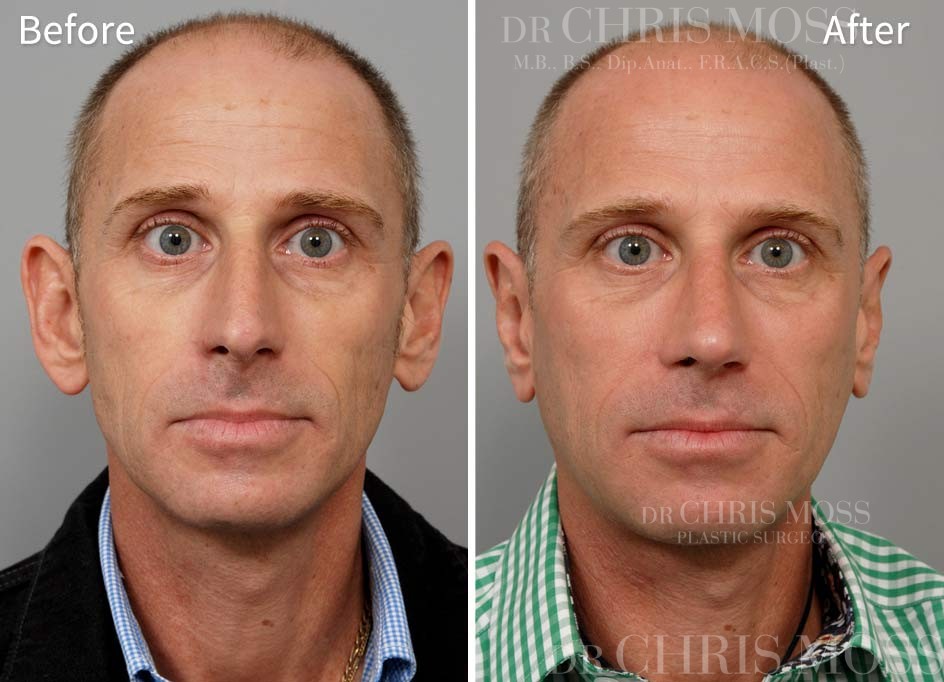Ear Surgery (Otoplasty)
Dr Moss performs ear shaping and ear pinning surgery (Otoplasty) to address concerns about excessively prominent ears in adults of all ages and children over 10 years of age. Medicare and private health insurance rebates apply up until 18 years of age. The procedure is called setback otoplasty and involves setting the ears back closer to the head taking care to avoid over-correction and an operated look. This makes the ears less prominent, appear smaller, and changes the overall balance of facial appearance. The technique Dr Moss uses is designed to comprehensively treat the anatomic issues so the ear should look natural without obvious signs of surgery having been performed. Dr Moss conceals the incisions in the natural groove behind the ear where they are not socially detectable. The incisional scars routinely heal and settle within weeks of surgery.
What is the best age for ear surgery (otoplasty)
Dr Moss recommends that usually, it is beneficial to wait to perform surgery until after 10 years of age when the ear has largely finished growing and the cartilage that needs reshaping has adequate strength for surgical reshaping.
In adulthood, the surgery can be performed at any time.
Risks
All surgery has risks – no matter who performs the surgery. When surgery is performed by a trained and experienced plastic surgeon there will be measures and precautions put in place to help lower the risk of complications occurring. If complications do occur and require further treatment or revisional surgery, then a qualified surgeon is trained to manage such complications. During the consultation, Dr Moss will carefully explain the possible risks of your surgery so that you can make an informed decision.
Different patients will heal differently, and have different pain thresholds and will therefore experience different recovery times for different activities The following possible complications – which apply to all surgeons worldwide – are listed to inform you, rather than to alarm you. A number of these risks are rare and have not occurred to date in Dr Moss’ practice. Further details on the level of any risk in your particular circumstances, including the possible impact of any comorbidities you may have, are provided in your consultation.
All patients are likely to experience some temporary discomfort/pain, numbness or altered sensation around the incisions or operated areas; bruising and swelling; skin discolouration; lumpiness, tightness, fatigue, low spirits; and nausea – typically from the anaesthetics or pain killers, which may require treatment.
General risks of surgery include wound infection, haematoma (collection of blood under the skin), abnormal scarring or internal scar tissue, bleeding from the incisions, allergies or reactions to anaesthetic agents, medications, sutures or topical treatments, delayed healing or separation of wound edges.
Risks of Anaesthesia include tooth damage; heart attack; pneumonia; blood clots in the leg or lung, and stroke. These are uncommon but could be life threatening.
Results
Disclaimer: Results vary from person to person. These images are indicative only and reflect the results for each patient. All surgery involves risks & recovery period – see below.

